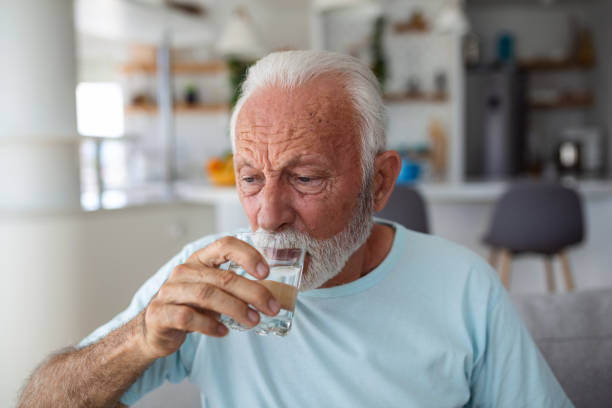When we get too hot, the hypothalamus causes our skin to produce sweat that cools us down as it evaporates. We then become thirsty and need to drink the water we have lost through sweating.
However, if we sweat too much or don’t drink water to replenish our fluids, we can become dehydrated.
Without enough water in our body, we lose the ability to cool ourselves with sweat and the body can overheat. This makes us more likely to experience heat stroke and other heat-related damage to our bodies.
As we age, the efficiency of our temperature regulation system decreases. While most research on the effects of dehydration has focused on young adults, a new study in The Journal of Physiology examines its role in the health of older adults.
Older adults may not feel as thirsty as young people and should take care to drink water when working or exercising and when the weather is hot.
Dehydration changes as we age
Researchers from the Human and Environmental Physiology Research Unit at the University of Ottawa in Canada investigated the paradoxical risk associated with dehydration in later life.
On the one hand, during exercise, dehydration in older adults does not immediately lead to an increase in body temperature through a reduction in heat loss, as it does in young people.
While this may seem like a good thing, sweat and thirst mean that the person loses important cues that it is time to rehydrate.
If not enough water is drunk, dehydration in older adults can persist and quietly rise to dangerous levels.
Blood salinity
Scientists have suggested that the reason older adults are less thirsty is their reduced ability to sense and respond to the level of salt in their blood.
When the balance between water and salt in the blood tends toward salinity, a young adult’s body responds with a feeling of thirst.
The researchers wondered whether the same decreased blood salinity or “osmolality” that reduces the sensation of thirst might be the driving force behind the less extreme response to dehydration in older adults.
Ten young men (18-30 years) and 10 older men (54-67 years) participated in exercise heat stress tests. The researchers asked them to refrain from consuming alcohol and strenuous exercise for 24 hours before each session. They also asked them to drink 500 milliliters of water the night before the experiments.
After screening, the men participated in two exercise sessions one week apart. At the start of each exercise session, participants received intravenous saline solution to increase blood osmolality before entering a heated, whole-body direct-air calorimeter for 1 hour of constant cycling.
The calorimeter measured participants’ whole-body evaporation and dry heat loss, and other measurements monitored a range of body temperatures and rates of heat loss.
Analysis of this data revealed a significant difference in body temperature regulation between younger and older men.
The researchers found that for older men, an increase in blood salinity did not trigger the body’s response to dehydration as it did in younger men.

